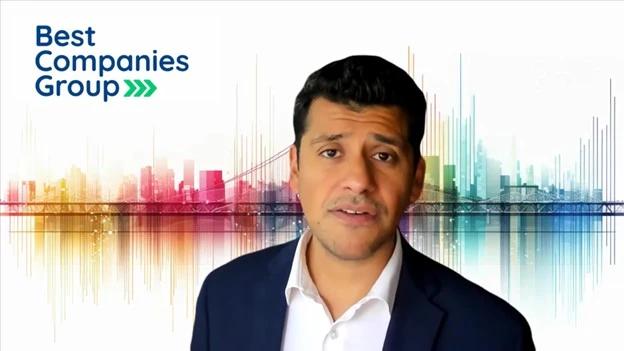While talking to several American golf course superintendents working abroad for a sidebar accompanying the cover story in this issue, one comment stuck out like a weed on a fairway at Augusta:
“I like the thought of being listened to more than what you get in the States. In the States, golf is run by opinionated businessmen who don’t listen well and are difficult to work with. Overseas, people are looking for information. It’s refreshing. People appreciate what you’re doing.”
Those are the thoughts of David Brinkel, vice president of Dubai Golf City in the United Arab Emirates. Brinkel likes it overseas so much he’s been over there for about 20 years. Though it’s just one person’s view – although I know Brinkel isn’t alone with his sentiment about those running private clubs in the U.S. – it says a lot about golf course operations here in the States. Brinkel’s thoughts should spur green committee members and club presidents to think about their relationship with their superintendents. Is this how your superintendent views you?
This isn’t the first time I’ve heard such sentiments from superintendents about those who run private clubs. In fact, I hear it regularly. Take hiring, for example. Those making the decisions to hire superintendents at private clubs know less than the interviewee about agronomy and course maintenance in general. But they’re the ones asking the questions because they own the clubs. Rightly so. In the mind of some committees, it seems a superintendent’s personality, previous employment (read prestigious clubs) and connections trump agronomic knowledge, a keen business sense, and managerial and organizational skills. Is that the best way to hire?
Then there are the stories about superintendents losing their jobs – not because they can’t grow grass but because they didn’t see eye to eye with a green committee chair or club president or didn’t continually meet members’ unrealistic expectations. Some superintendents are tired of dealing with know-it-all wealthy businessmen on a power trip when it comes to maintaining their playground. Go figure, politics screws up a good thing at many clubs.
Money, power, politics, ego … sounds like the ingredients for a racy Hollywood thriller, when in reality, superintendents deal with those aspects of club life regularly.
The decision makers at private clubs aren’t necessarily the most educated people when it comes to golf course operations. Just because they have a lot of money and a big, green playground doesn’t mean they have to deal with superintendents in such negative ways that drive them to other clubs, sales positions in the industry or even countries.
Of course, not all club members are such a pain. There are those who learn as much as they can about course maintenance, don’t complain much about course conditions, understand superintendents’ jobs, treat them with respect and actually listen to them. But you don’t hear about that type often.
I’m sure there are many more David Brinkel’s out there who are dealing with the egotistical volunteer leaders who just don’t get it when it comes to club operations. It’s too bad. Members should keep in mind the companies at which they’re executives operate differently than their golf clubs.
Despite individual wealth and equity in their club, these difficult-to-work-with members should lose the ego, get off the power trip and take it easy on superintendents. Doing so is only going to improve course conditions at their club, although it will happen without as much input as members would like to give. But members shouldn’t worry, superintendents can handle it.
“I like the thought of being listened to more than what you get in the States. In the States, golf is run by opinionated businessmen who don’t listen well and are difficult to work with. Overseas, people are looking for information. It’s refreshing. People appreciate what you’re doing.”
Those are the thoughts of David Brinkel, vice president of Dubai Golf City in the United Arab Emirates. Brinkel likes it overseas so much he’s been over there for about 20 years. Though it’s just one person’s view – although I know Brinkel isn’t alone with his sentiment about those running private clubs in the U.S. – it says a lot about golf course operations here in the States. Brinkel’s thoughts should spur green committee members and club presidents to think about their relationship with their superintendents. Is this how your superintendent views you?
This isn’t the first time I’ve heard such sentiments from superintendents about those who run private clubs. In fact, I hear it regularly. Take hiring, for example. Those making the decisions to hire superintendents at private clubs know less than the interviewee about agronomy and course maintenance in general. But they’re the ones asking the questions because they own the clubs. Rightly so. In the mind of some committees, it seems a superintendent’s personality, previous employment (read prestigious clubs) and connections trump agronomic knowledge, a keen business sense, and managerial and organizational skills. Is that the best way to hire?
Then there are the stories about superintendents losing their jobs – not because they can’t grow grass but because they didn’t see eye to eye with a green committee chair or club president or didn’t continually meet members’ unrealistic expectations. Some superintendents are tired of dealing with know-it-all wealthy businessmen on a power trip when it comes to maintaining their playground. Go figure, politics screws up a good thing at many clubs.
Money, power, politics, ego … sounds like the ingredients for a racy Hollywood thriller, when in reality, superintendents deal with those aspects of club life regularly.
The decision makers at private clubs aren’t necessarily the most educated people when it comes to golf course operations. Just because they have a lot of money and a big, green playground doesn’t mean they have to deal with superintendents in such negative ways that drive them to other clubs, sales positions in the industry or even countries.
Of course, not all club members are such a pain. There are those who learn as much as they can about course maintenance, don’t complain much about course conditions, understand superintendents’ jobs, treat them with respect and actually listen to them. But you don’t hear about that type often.
I’m sure there are many more David Brinkel’s out there who are dealing with the egotistical volunteer leaders who just don’t get it when it comes to club operations. It’s too bad. Members should keep in mind the companies at which they’re executives operate differently than their golf clubs.
Despite individual wealth and equity in their club, these difficult-to-work-with members should lose the ego, get off the power trip and take it easy on superintendents. Doing so is only going to improve course conditions at their club, although it will happen without as much input as members would like to give. But members shouldn’t worry, superintendents can handle it.

Explore the October 2008 Issue
Check out more from this issue and find your next story to read.
Latest from Golf Course Industry
- Editor’s notebook: Green Start Academy 2024
- USGA focuses on inclusion, sustainability in 2024
- Greens with Envy 65: Carolina on our mind
- Five Iron Golf expands into Minnesota
- Global sports group 54 invests in Turfgrass
- Hawaii's Mauna Kea Golf Course announces reopening
- Georgia GCSA honors superintendent of the year
- Reel Turf Techs: Alex Tessman





